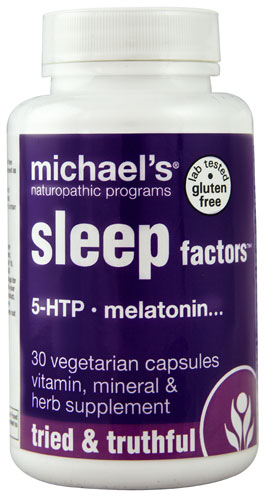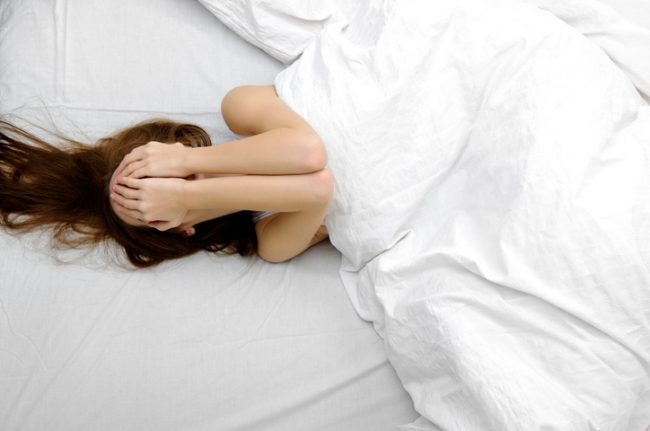Puling an occasional all-nighter or regularly skimping on your Zs may seem harmless. But cheating yourself out of few hours of sleep can have a big impact on your health, resulting an expanding waistline. In “Why We Sleep: Unlocking the Power of Sleep and Dreams,” Matthew Walker, PhD, explains that sleeping less than seven or eight hours per night increases your probability of packing on pounds and developing type 2 diabetes. When you’re sleep deprived, your body can’t burn calories effectively or properly manage your blood sugar.
And according to the American Academy of Sleep Medicine and the Sleep Research Society, sleeping less than seven hours per day is also associated with an increased risk of developing obesity, high blood pressure, heart disease, stroke and mental health conditions. Both organizations recommend adults sleep at least 7 hours each night to promote optimal health and well-being.
But many Americans are falling short of that guideline. When the U.S. Centers for Disease Control and Prevention collected self-reported national sleep data in 2016, the agency found that more than one-third of American adults aren’t sleeping at least seven hours per day.
Hectic work schedules and disruptive life events can easily throw our sleep routine off balance. When we sacrifice sleep for productivity, our overall health pays the price. Scientific research has proven that chemical and hormonal imbalances are to blame for overeating and making poor food choices when we’re running on fumes. Luckily, it is possible to get back into a healthy sleep routine and keep those extra pounds at bay.
Recipe for weight gain
What exactly happens in our bodies when we fall behind on sleep? Dr. Walker’s book identifies two hormones that affect body weight when we don’t get enough sleep: leptin, which signals to the body that it’s full, and ghrelin, which triggers a strong hunger sensation. High levels of leptin decrease your appetite, and high levels of ghrelin increase your appetite. If either or both levels are knocked out of alignment due to lack of sleep, you’re likely to eat more and pack on the pounds.
For example, research conducted by Eve Van Cauter, PhD, at the University of Chicago found that study participants who slept only four to five hours per night for five nights were ravenous by day two. In contrast, when the same participants were given the opportunity to sleep eight-and-a-half hours per night for five nights they were able to control their hunger levels. When restricting their sleep, they saw their leptin levels drop and their ghrelin levels rise, essentially discarding feelings of fullness and intensifying hunger pangs.
Dr. Van Cauter had shown a link between lack of sleep and amplified hunger, but to prove that those who sleep less actually eat more and therefore gain weight, she conducted another study. This time she allowed study participants to sleep eight-and-a-half hours per night for four nights and then restricted their allowance to four-and-a-half hours of sleep per night for four nights. Each day they had unlimited access to food.
When the participants slept only four-and-a-half hours each night, they ate 300 calories more each day compared to when they slept a full night. The results were similar for those who slept five to six hours per night for 10 nights. According to “Why We Sleep,” over the course of a year, people who routinely sleep less than seven hours per night will consume 70,000 extra calories, potentially resulting in a 10- to 15-pound weight gain.
Sleep-deprived lifestyle
Sarah Adler, personal trainer for San Francisco-based Steiner Strength Personal Training, says she can often tell when her clients aren’t getting enough sleep. She notices they’re increasingly anxious, excessively tired, falling short of their fitness objectives or snacking more frequently on junk food. It’s an ideal time for a few extra pounds to creep up.
“Most people don’t come in to work with me thinking sleep is an area they need to improve on. Sometimes it takes stalling out on goals to get them to take it seriously,” she says.
She adds that challenging life events — birth of a child, moving, starting a new job — often have a detrimental impact on sleep.
“Life doesn’t exist in a vacuum,” she says. “When life feels out of control, we sacrifice our own self-care and needs, creating the perfect storm for hormones to get out of whack. We start eating whatever we can get our hands on.”
To determine why we make a mad dash for junk food when we’re tired, we can once again look to the research for answers. In another study, Dr. Van Cauter gave participants access to a snack bar full of cookies, chocolate bars, chips and pretzels. She found they consumed an additional 330 calories of junk food when they’d slept only four-and-a-half hours over a four-day span compared to when they were getting eight-and-a-half hours of sleep during the same time frame.
Excessively tired people don’t simply eat more; they’re more likely to make unhealthy choices. It turns out chemicals known as endocannabinoids are responsible for this surge in snacking that sleep loss brings on. As detailed in “Why We Sleep,” endocannabinoid levels rise when hours of sleep drop off, arousing a sleep-deprived person’s appetite and desire to binge on junk food.
The health trifecta: sleep, diet and exercise
Adler is no stranger to sleep struggles. As a high school lacrosse player and competitive swimmer, she was diagnosed with delayed sleep phase disorder, which occurs when a person’s circadian rhythm, or sleep/wake cycle, is delayed from the typical day/night cycle. Alarmed by her sudden inability to focus, she sought treatment from a psychiatrist.
“I was sleeping only two to four hours per night, and my athletic performance started slipping. I was also drinking lots of coffee as a teenager, which probably wasn’t the best thing,” she says.
Adler’s doctor explained that her body had such a severe sleep deficit that it was affecting her ability to concentrate and maintain a high level of athletic performance. He prescribed her a treatment that would help to reset her circadian rhythm.
“After three weeks of treatment, I was able to get back to a normal sleep schedule,” Adler says.
To maintain a healthy sleep pattern as an adult, Adler relies on the Tracks to Relax podcast, which she describes as guided meditation that borders on hypnosis. She also avoids cellphone and computer screen time at least one hour before bedtime. She says she sleeps more restfully if she gradually lowers the light levels in her home or takes a melatonin supplement before lying down.
To help her sleep-deprived clients adjust to a healthy sleep routine, Adler encourages them to focus on eating a healthy diet and getting plenty of exercise
“When you work out during the day, your body is ready for bed at night. Sleep, diet and exercise are all cornerstones of living a healthy lifestyle,” she adds.




